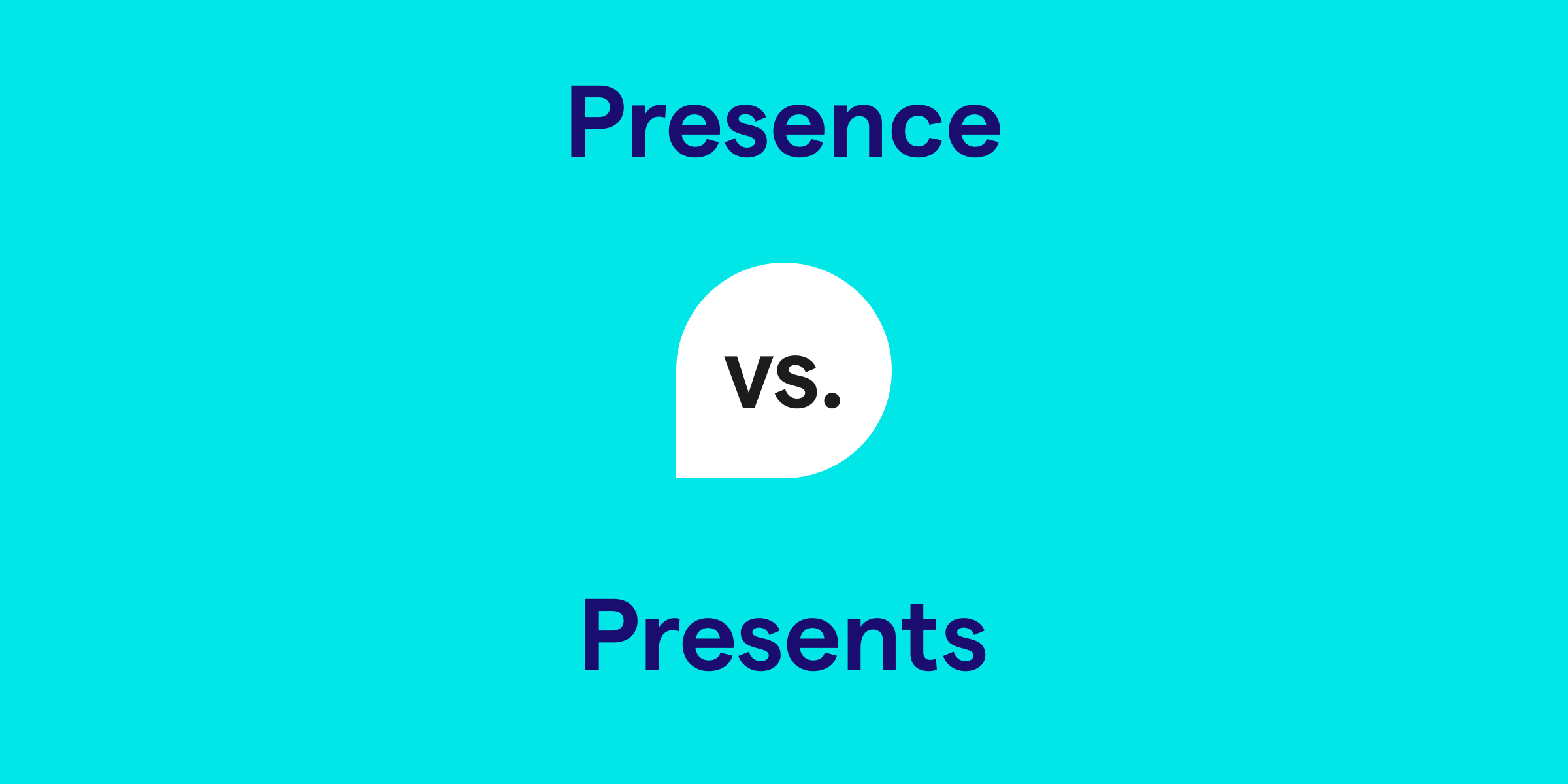Presence vs. Presents: What's the Difference?
Understanding the distinction between presence and presents is crucial due to their common pronunciation but differing meanings. Presence refers to the state of being in a particular place or the impression someone creates through their demeanor or aura. Conversely, presents is the plural of 'present,' which means gifts or offerings given to someone on a special occasion or as an act of goodwill.

How do you use the word presence in a sentence?
The word presence is used to describe the act of being present or the manner in which a person carries themselves in a specific environment. It can be employed to highlight physical location within a space or even a more abstract notion, like the force of personality someone holds within a social context. This term emphasizes existence or attendance in a given context.
Examples of presence in a sentence
- Her commanding presence could be felt even before she entered the room.
- The presence of security personnel provided a sense of safety at the event.
- Mobile phones have become a constant presence in our daily lives.
How do you use the word presents in a sentence?
As the plural form of 'present,' the word presents is typically used to mention the gifts or tokens of appreciation that one person gives to another. It finds its place in sentences discussing holiday celebrations, birthdays, or any occasion where the exchange of gifts is customary. Using presents in a sentence often conveys a sense of generosity or celebration.
Examples of presents in a sentence
- He was delighted by the array of presents awaiting him on his birthday.
- During the festive season, our home is always filled with presents for family and friends.
- She spent the afternoon wrapping presents for the charity drive.
Presence and presents definition, parts of speech, and pronunciation
Presence definition:
Presence is a noun that signifies the fact or condition of being present, or the immediate vicinity of someone or something. It also can denote a notable quality that makes someone stand out in a crowd.
Presence parts of speech:
Presence pronunciation:
The word 'presence' is pronounced as 'prez-uhns'.
Presents definition:
Presents are nouns that refer to things given to someone as a gift or as part of a ceremony. They are material items or any other forms of contributions given voluntarily without expecting anything in return.
Presents parts of speech:
Presents pronunciation:
The word 'presents' is pronounced as 'prez-ənts'.
Presence is a noun that signifies the fact or condition of being present, or the immediate vicinity of someone or something. It also can denote a notable quality that makes someone stand out in a crowd.
Presence parts of speech:
- As a noun, presence can refer to a person's demeanor: Her calm presence was reassuring during the crisis.
Presence pronunciation:
The word 'presence' is pronounced as 'prez-uhns'.
Presents definition:
Presents are nouns that refer to things given to someone as a gift or as part of a ceremony. They are material items or any other forms of contributions given voluntarily without expecting anything in return.
Presents parts of speech:
- As a noun (plural of 'present'): They made a charitable donation for Christmas instead of exchanging presents.
Presents pronunciation:
The word 'presents' is pronounced as 'prez-ənts'.
Presence vs. Presents in a nutshell
The essence of presence lies in being at a location or highlighting a personality trait, while presents involves the exchange of gifts. One is about the intangible impression one makes or physical existence in a place, and the other is about tangible items handed from one individual to another. Being aware of these differences avoids confusion in written and spoken communication and enriches one's vocabulary usage.
Get AI Writing Assistance Wherever You Type
Make sure your vocabulary is on point and every punctuation mark is in the right place, no matter where you’re working. Grammarly works across more than 1 million websites and apps so you can improve your writing without copying, pasting, or breaking focus.

More Commonly Confused Words
Interest piqued? Pore (not pour) over other commonly confused words to help your writing reach peak (not peek) performance.